Kaddu ka Raita: A Recipe for Grief & Loss

Pallavi Pratibha writes about her grandfather, whose story blurs lines of caste and patriarchy, and an inexplicably delicious recipe for pumpkin raita served at funerals.
The story of my Nanaji is a story of food, and loss. A lower caste man who grew up in Patna and maybe studied till about class 10. No one knew for sure. He could read, though. He could read so well that he started a printing press called Suryodaya in Patna, Bihar. But he lost it all, and did odd jobs well into his 80s.
All my memories of Nanaji are around food — stealing Pappa biscuit from his ration dukan and eating it, hoping he wouldn'’t notice; the machhli chokhas he made for me. He would cook for my Nani and me. Even before I reached their home, the fish would be ready. I would see him either over a stove, or cleaning the small fish. For a long time, I did not know how to tear a roti into small pieces; so he would tear bite-sized pieces for me as we sat down together to eat. The very last time I met him, he was old and bed-ridden and had lost most of his teeth. When an omelette was served to him, he asked me to break it into small pieces, and smiled. I don’t know if he knew what he was doing in that moment. Life comes full circle in different ways. This one was a bite-sized circle.
Grieving and Kaddu ka Raita
In Dhanbad, my family went through a flood. I remember my brother and I being excited about our bed floating in the water. Later when I woke up, half our belongings had floated away and the other half were being dried in the sun. In the midst of this all, Nanaji arrived with jalebi kachori. It seemed the most natural thing in the world, that he had turned up with food, like he always did.
When I was really young, two of Nanaji’s daughters committed suicide; the shock sent my grandmother into a full body paralysis, and broke my Nanaji. He cooked, washed and cleaned my Nani until she passed away. He prayed that she would pass before he did, so that she would never suffer indignity at the hands of another. My Nani eventually forgot my name, and the grief from their loss led to a downward spiral of business and money. Gradually, the fish was no longer present when I reached Patna, and later sometimes, even grains and vegetables were absent in their home.
At my mausis’ death rituals, I remember a certain kaddu raita was served. I was so overwhelmed by the flavours, I ran about excitedly telling everyone, “Raita khaiye na please! Bahuuut tasty hai.” (Please eat the raita! It tastes amazing). Now, I am embarrassed by the memory. My Nanaji passed away during lockdown, and as I was there, tasting the kaddu ka raita served at his funeral, I held myself back with difficulty, restraining from saying those same words — “This tastes incredible!” Another full circle.
My mother looks exactly like her father and I look exactly like her. My Nanaji’s relationship with cooking, the kitchen and caregiving continues to shape my ideas around power and patriarchy, and the role they play in the life of a man for whom much is pre-determined by caste and society. And despite it all, my Nanaji in his dhoti-kurta, smiled, told stories, fed me, and was generally the most wonderful (and perhaps the only feminist) man I knew. One who probably didn’t even know the word feminism.
Recipe: Kaddu ka Raita
Ingredients
500 g kaddu
20 g sun-dried mustard seeds
1 tsp black salt
A pinch of pepper powder
1 small piece of ginger
2 cups curd
Salt to taste
Method
Boil the kaddu, and keep aside to cool.
Grind the sun-dried black mustard seeds in a mortar and pestle to a fine powder, but keep it crisp.
Grate the ginger.
In the curd, put the kaddu, the ground mustard, grated ginger, salt as per taste, black salt and pepper powder.
Serve.
Pallavi Pratibha is from Bihar, and grew up in Jharkhand. She is interested in subjects of caste, gender and sexuality.
ALSO ON THE GOYA JOURNAL

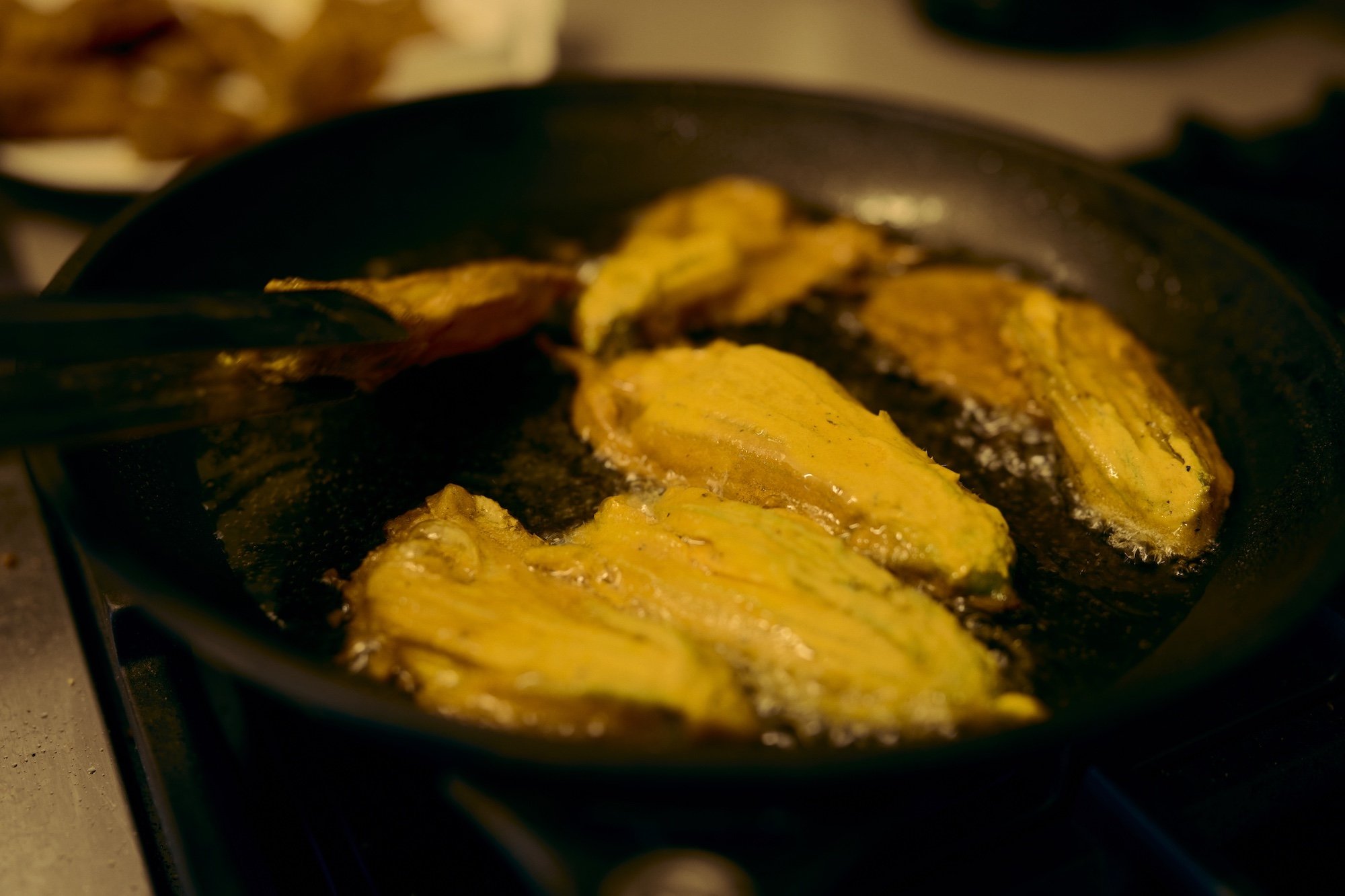
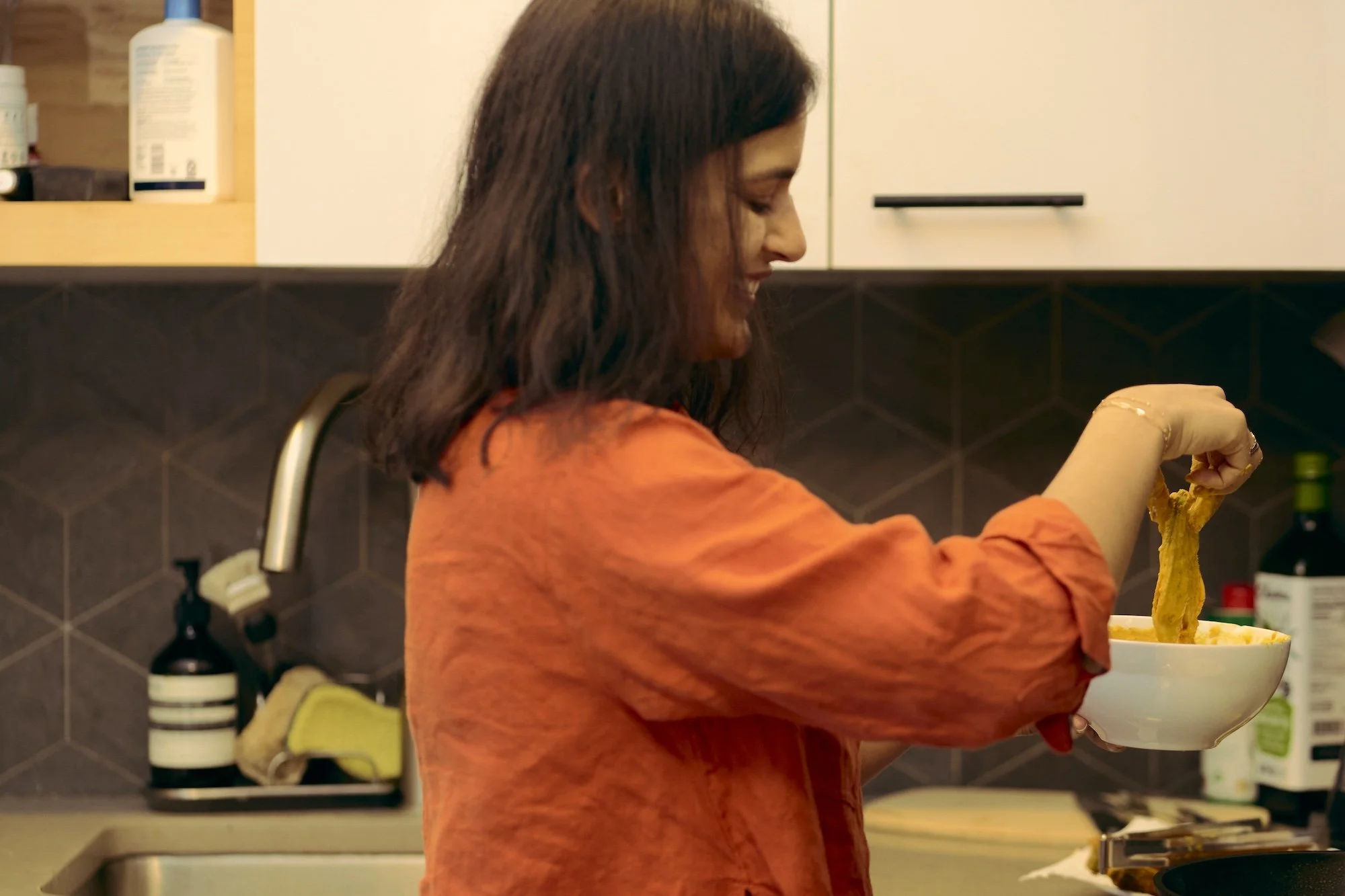
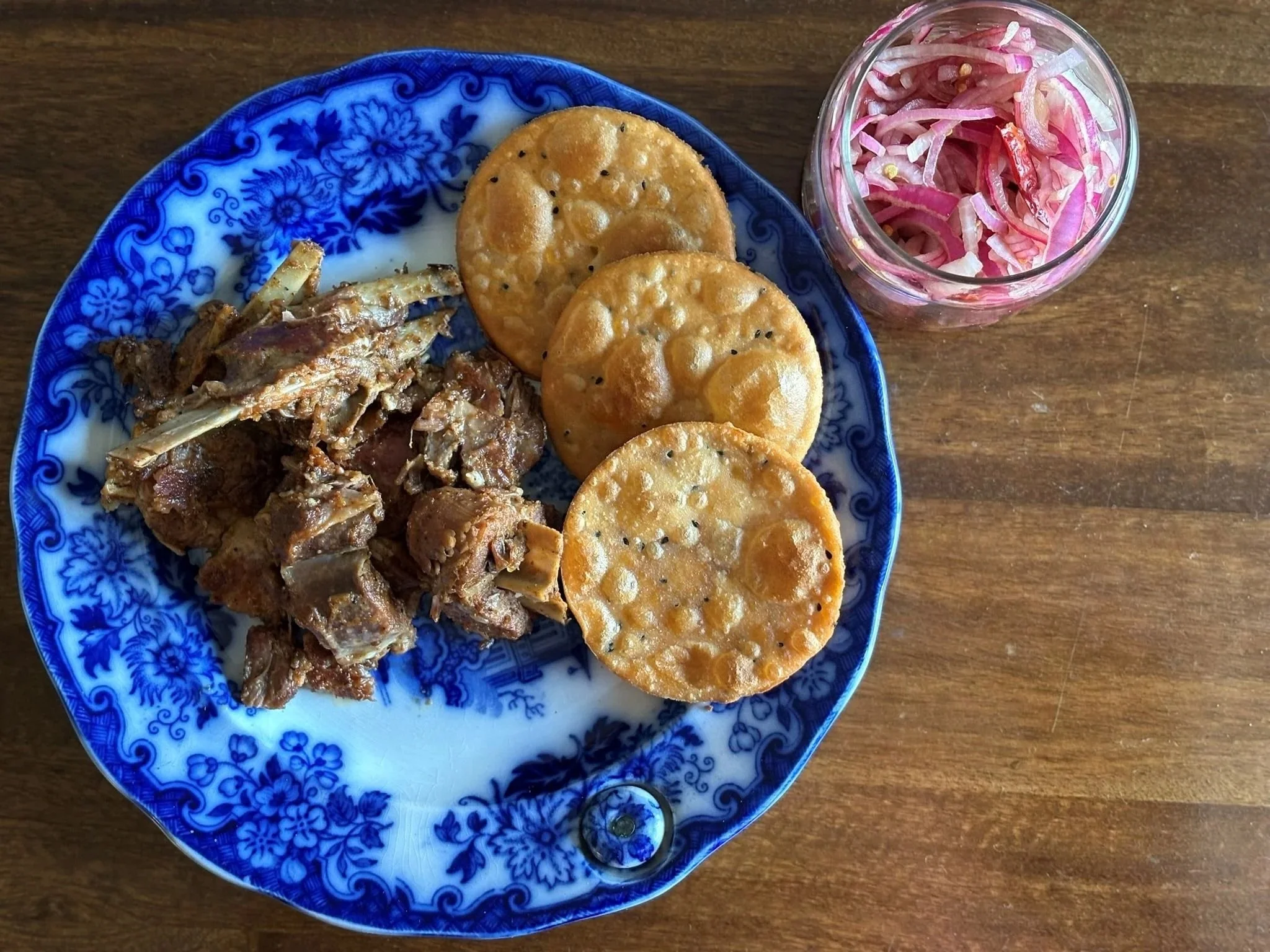
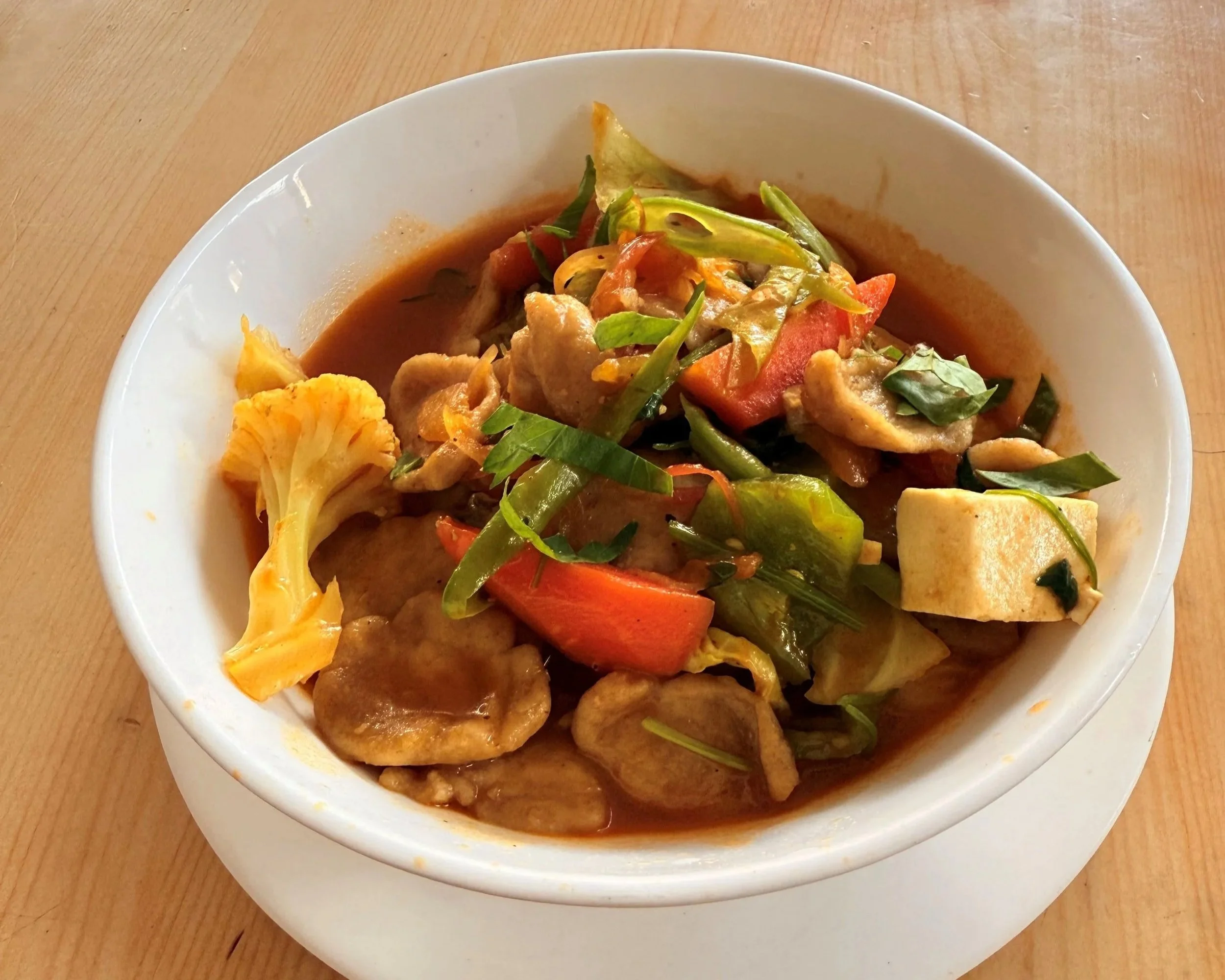
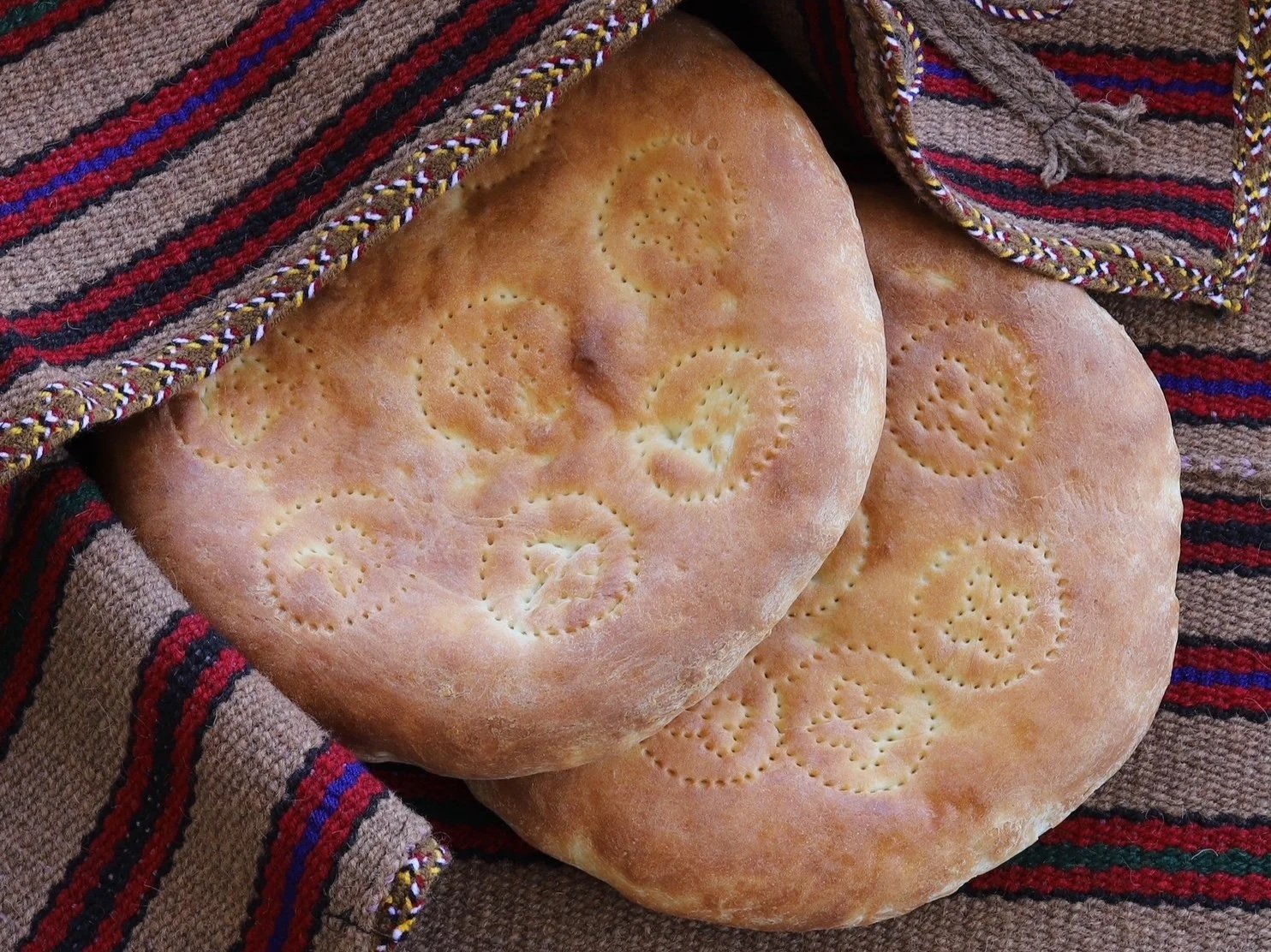
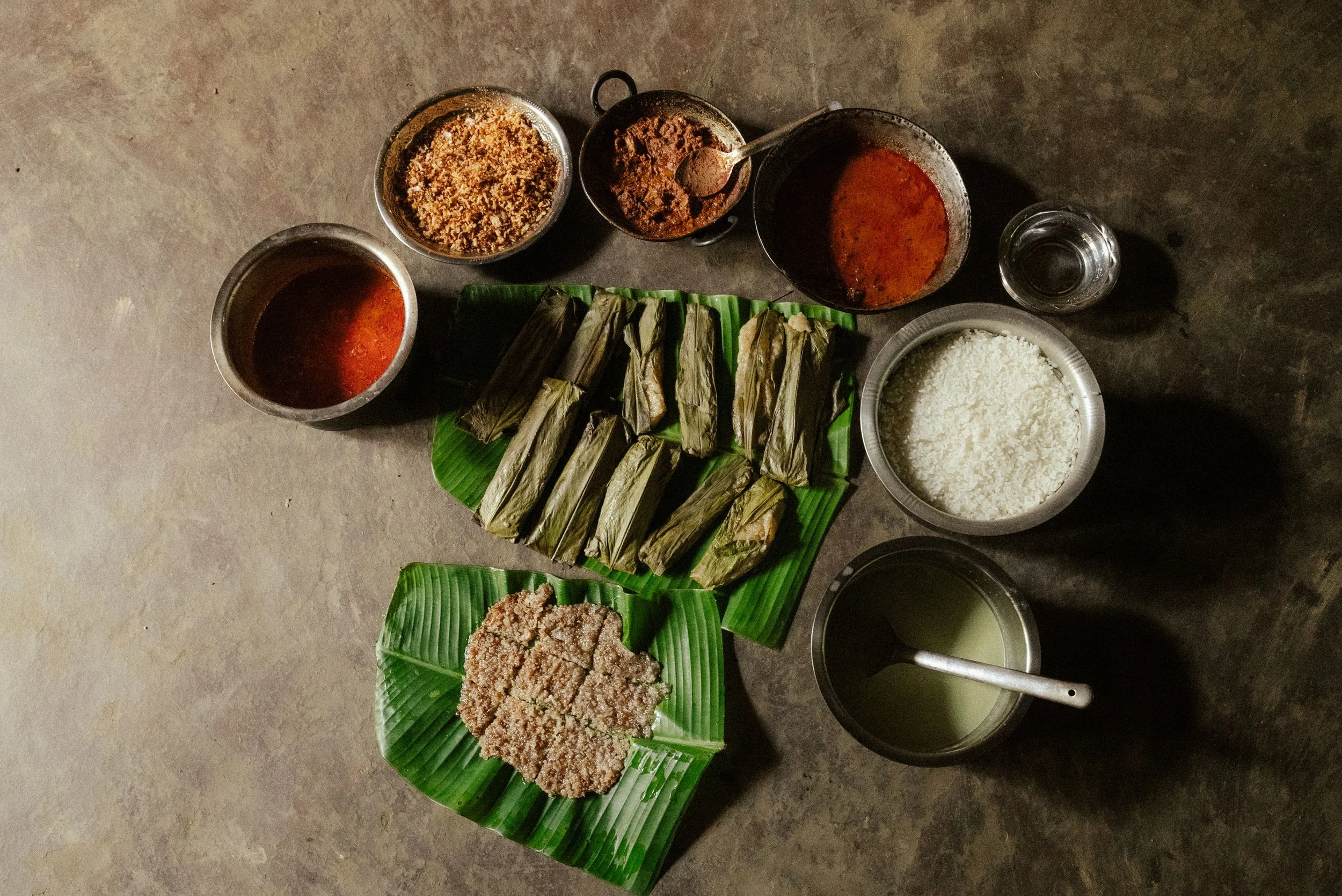
Neo-nomad cuisine of Central Asia | Terrence Manne